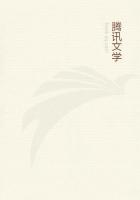Some years elapsed after Herschel's attention had been first directed to astronomy, before he reaped the reward of his exertions in the possession of a telescope which would adequately reveal some of the glories of the heavens. It was in 1774, when the astronomer was thirty-six years old, that he obtained his first glimpse of the stars with an instrument of his own construction. Night after night, as soon as his musical labours were ended, his telescopes were brought out, sometimes into the small back garden of his house at Bath, and sometimes into the street in front of his hall-door. It was characteristic of him that he was always endeavouring to improve his apparatus. He was incessantly ****** fresh mirrors, or trying new lenses, or combinations of lenses to act as eye-pieces, or projecting alterations in the mounting by which the telescope was supported.
Such was his enthusiasm that his house, we are told, was incessantly littered with the usual indications of the workman's presence, greatly to the distress of his sister, who, at this time, had come to take up her abode with him and look after his housekeeping. Indeed, she complained that in his astronomical ardour he sometimes omitted to take off, before going into his workshop, the beautiful lace ruffles which he wore while conducting a concert, and that consequently they became soiled with the pitch employed in the polishing of his mirrors.
This sister, who occupies such a distinct place in scientific history is the same little girl to whom we have already referred. From her earliest days she seems to have cherished a passionate admiration for her brilliant brother William. It was the proudest delight of her childhood as well as of her mature years to render him whatever service she could; no man of science was ever provided with a more capable or energetic helper than William Herschel found in this remarkable woman. Whatever work had to be done she was willing to bear her share in it, or even to toil at it unassisted if she could be allowed to do so. She not only managed all his domestic affairs, but in the grinding of the lenses and in the polishing of the mirrors she rendered every assistance that was possible. At one stage of the very delicate operation of fashioning a reflector, it is necessary for the workman to remain with his hand on the mirror for many hours in succession. When such labours were in progress, Caroline used to sit by her brother, and enliven the time by reading stories aloud, sometimes pausing to feed him with a spoon while his hands were engaged on the task from which he could not desist for a moment.
When mathematical work had to be done Caroline was ready for it; she had taught herself sufficient to enable her to perform the kind of calculations, not, perhaps, very difficult ones, that Herschel's work required; indeed, it is not too much to say that the mighty life-work which this man was enabled to perform could never have been accomplished had it not been for the self- sacrifice of this ever-loving and faithful sister. When Herschel was at the telescope at night, Caroline sat by him at her desk, pen in hand, ready to write down the notes of the observations as they fell from her brother's lips. This was no insignificant toil. The telescope was, of course, in the open air, and as Herschel not unfrequently continued his observations throughout the whole of a long winter's night, there were but few women who could have accomplished the task which Caroline so cheerfully executed. From dusk till dawn, when the sky was clear, were Herschel's observing hours, and what this sometimes implied we can realise from the fact that Caroline assures us she had sometimes to desist because the ink had actually frozen in her pen. The night's work over, a brief rest was taken, and while William had his labours for the day to attend to, Caroline carefully transcribed the observations made during the night before, reduced all the figures and prepared everything in readiness for the observations that were to follow on the ensuing evening.
But we have here been anticipating a little of the future which lay before the great astronomer; we must now revert to the history of his early work, at Bath, in 1774, when Herschel's scrutiny of the skies first commenced with an instrument of his own manufacture. For some few years he did not attain any result of importance; no doubt he made a few interesting observations, but the value of the work during those years is to be found, not in any actual discoveries which were accomplished, but in the practice which Herschel obtained in the use of his instruments. It was not until 1782 that the great achievement took place by which he at once sprang into fame.
[PLATE: GARDEN VIEW, HERSCHEL HOUSE, SLOUGH.]














